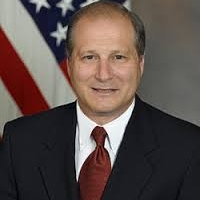

3:00 pm EDT - 4:00 pm EDT
Past Event
Over the past four years, some of the moments of greatest risk have come as a result of crises involving Iran and North Korea. On October 20, Foreign Policy at Brookings hosted a webinar to explore the nuclear proliferation and regional security threats each of these countries poses to the United States and its allies. A panel of experts, moderated by Vice President and Director of the Foreign Policy program Suzanne Maloney, contemplated how the next administration should engage these regimes while maintaining balance between the use of pressure and diplomacy.
Senior Fellow Robert Einhorn began the panel by contending that the Trump administration failed on North Korea and Iran because it made unilateral decisions without support from its allies, failed to align means and ends by pursuing overly ambitious negotiating objectives, and underestimated both countries’ willingness to pay an enormous price to protect what they regarded as vital interests. In a Biden administration, top foreign policy priorities would include regaining the world’s respect and ensuring trust in U.S. alliance commitments. Moreover, the Biden administration would likely pursue negotiated solutions with both regimes, seeking an early return to the Iran nuclear deal (the Joint Comprehensive Plan of Action, or JCPOA) with Iran and exploring with North Korea a step-by-step approach to the ultimate goal of complete denuclearization.
Deputy Director of the Atlantic Council’s Scowcroft Center Matthew Kroenig pointed out that there is actually more bipartisan agreement regarding Iran and North Korea than we tend to realize. The primary objective for the U.S. is to ensure that both countries’ nuclear missile programs are in check through consistent pressure and engagement. The issue lies with how hard we should pressure each regime and when to stop. It’s time to “lean back on the pressure track,” he said, “to get North Korea in a place where maybe it would come back to the table and discuss serious limits.”
Senior Fellow Jung Pak emphasized that North Korea is playing the long game in terms of its strategic interests. Despite having developed what appears to be a relatively close relationship with President Trump, Kim Jong Un has not, and likely will not, feel deterred in strengthening North Korea’s nuclear weapons capabilities. Though relations between South Korea and the U.S. are more tense given a difference in approaches to North Korea and other bilateral issues, Washington must work with Seoul and other allies and partners in the region to ensure a multilateral approach.
Roger Hertog Distinguished Practitioner-in-Residence at the Johns Hopkins School of Advanced International Studies Eric Edelman stressed the strength that U.S. alliances bring to any effective response toward Iran and North Korea. To reinvigorate these alliances and repair some of the trust lost during the Trump administration, he argued that the U.S. needs to recognize what is really at stake — the nonproliferation treaty regime. The U.S. must “heighten the sense of urgency among its allies,” and to do so we must use “one very important tool for dealing with both of these countries, which is our emphasis on human rights and promotion of democracy.”
The panelists agreed that retaining a strong bipartisan consensus to solve these issues will be extremely difficult, especially given the current state of political polarization in the United States. However, as Maloney stated, “we can all say with some confidence, that Iran and North Korea will remain the top of the priority list for whomever is in the White House in 2021.”
Panelist



Constanze Stelzenmüller
April 22, 2024

Molly E. Reynolds, Fred Dews
April 22, 2024

Jonathan Katz, Lily Conway, Norman Eisen, Robin J. Lewis, Andrii Borovyk, Josh Rudolph
April 19, 2024